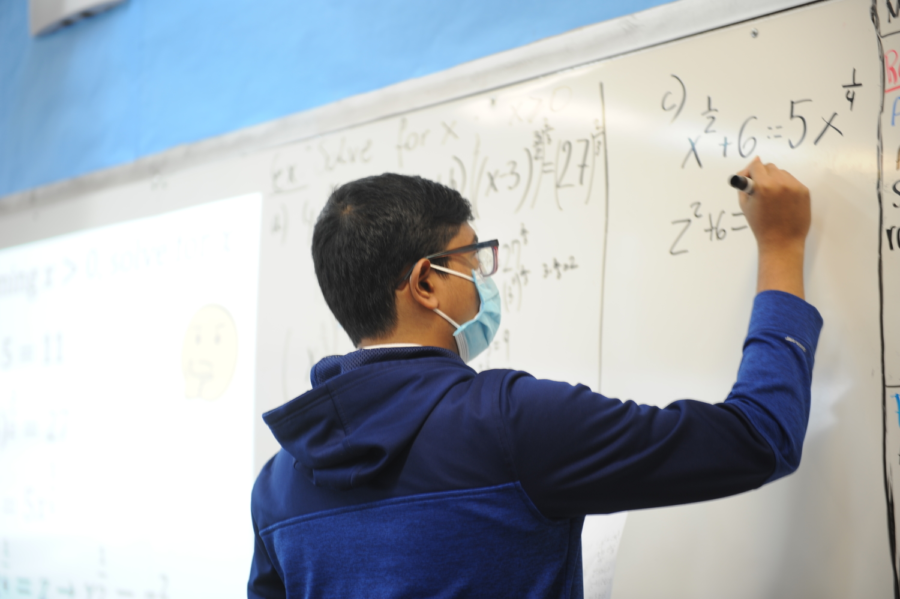What’s On That Black Board? Science Consulting in Film and TV
A dive into the real scientists behind “fictional” science.
Science consultants craft STEM concepts — including fake equations — in order to enhance fictional narratives. “I don’t think it is a choice between one or the other but a perfect balance between the two ideas. I learned a long time ago to ‘never let the science get in the way of a good story’ but instead, find ways to use the science creatively to enhance it,” said Emilie Lorditch, founder of Reel2Real Science.
Science is the backbone of our world, which means that it inevitably underlies the plots of many popular films and television shows. As an avid cinephile and biology research student myself, I often catch myself trying to break down characters’ scientific name-drops, or pausing to examine the scribbles of equations on background blackboards.
For example: in Don’t Look Up, an original Netflix movie that depicts the danger of a comet hurtling towards Earth, scientists lay out a plan to warn the world of its impending doom. In The Amazing Spider-Man, Peter Parker accidentally helps to create villainous mutant lizards with his solution to the “The Decay Rate Algorithm,” a fictional derivation of the Gompertz–Makeham law of mortality. Avengers: Endgame features an elaborate time travel plan involving Deutsch propositions, eigenvalues and inverted Möbius strips. None were technically real scientific developments, of course, but how do they sound so real?
The answer: scientific consulting. This hidden field is dedicated to scientific advising in the entertainment industry, and it’s an exciting way for STEM professionals to become engaged in the world of fiction. These interactions connect Hollywood (writers, producers, directors), “with top STEM experts to create synergy between accurate science and engaging storytelling,” said Emilie Lorditch, founder of Real2Reel Science, a science consulting service for writers.
Media greatly impacts the public’s perception of science. According to The Pew Research Center, 81% of U.S. adults say they watch media involving criminal investigations, hospital/medical settings, or science fiction. The average American watches 84 movies a year. By placing STEM professionals on movie sets, scientists can not only assist in executing a narrative vision but also aid in sharing more engaging portrayals of STEM.
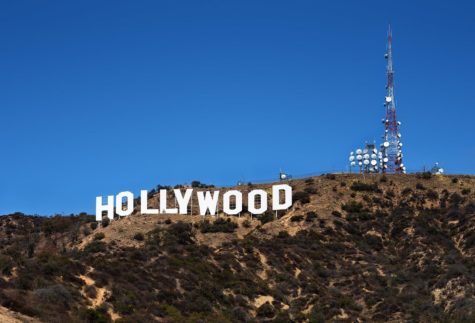
“The Hollywood, Health & Society program at USC has worked with multiple TV shows to develop storylines about organ donation, and has studied the impact of the plot on viewers’ knowledge, attitudes, and behavior,” said Lorditch, who believes science advising fosters mutual exchange. The USC Annenberg Norman Lear Center’s longitudinal impact studies focus on providing — then studying the impact of — information about health, safety and security in Hollywood projects.
While many science consultants work independently or through institutions like USC, the science advising wing of Hollywood primarily stems from The National Academy of Sciences’ Science & Entertainment Exchange. Founded in 2008, the Exchange aims to improve the science that appears in narrative mainstream media through a “soft-sell” approach. The Exchange has completed more than 2,300 consultations on projects such as A Wrinkle in Time, Watchmen, and various Marvel Studios films. The organization essentially serves as a direct hotline for filmmakers to reach researchers, medical professionals, and more — as befits the Exchange’s actual phone number, 1-844-NEED-SCI.
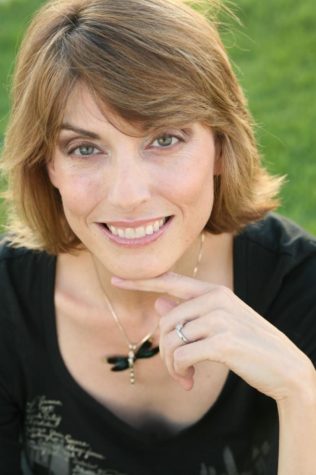
However, it isn’t a scientific consultant’s job to make sure films are 100% accurate. Science fiction is called science fiction for a reason, and scientists aren’t keen on incorporating factual science when it comes at the expense of compelling storytelling. “The story always comes first. Period,” said Jennifer Ouellette, founding director of The Science & Entertainment Exchange. She now covers science and culture as a senior writer at Ars Technica, and has published several science-related books.
Ouellette always made sure to advise scientists working on their first Hollywood films to not just shake their heads when presented with a script. “They should think about what needs to happen in that scene, and come up with an even better scientific explanation. That makes it a win-win,” said Ouellette, who cites The Expanse as some of the best science representation in film and TV.
Insisting that science/scientists should only be portrayed in a positive light is not a solution, either. “Scientists are flawed human beings just like everyone else, and those flaws are what make us interesting and complex characters,” she continued.
Ouellette’s husband — theoretical physicist Sean M. Caroll at the California Institute of Technology — has served as a science consultant himself, helping to devise Tony Stark’s famous time-warping plan in Avengers: Endgame. He also advised one of Ouellette’s favorite science TV moments: an episode of BONES, when a physicist represses his grief over his gymnast daughter’s death. Caroll spent days on set writing a series of physics equations on blackboards. But he wasn’t developing hard science for the sake of science.
By the end of the episode, the characters learn that “each equation represents a moment in his daughter’s life: learning to walk, then run; doing her first backflip; a vault; and so on, until the final equation, showing her finally at rest. The writers turned it into a poem written in equations, and it remains one of the most amazing moments I’ve seen on television in a long time,” said Ouellette.
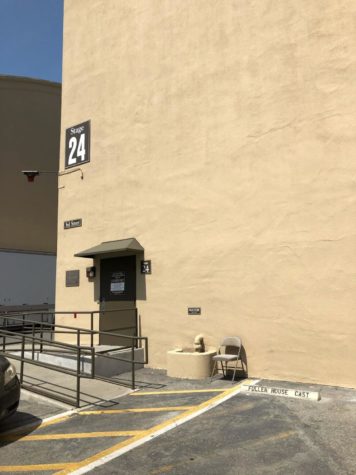
On top of the fundamental fact that science must be in service of the story, the science doesn’t always have to be precise. “In the world of STEM, precision is crucial but for the majority of the public, not so much,” said Lorditch. Most viewers would agree. Spring Lin ’22 ignores “slightly questionable” scientific explanations, claiming they don’t interfere with the cinematic experience. “When there are no obvious wrongs in a movie, I usually don’t question it,” said Rita Chen ’22.
Science advisors also lurk on a surprisingly wide range of sets — whether it is on reality TV such as MTV’s Teen Mom, or behind the scenes of The Simpsons. But it’s not particularly easy for scientists to be assigned to these secretive and oftentimes elusive roles. The job usually requires you to live in a major production city like Los Angeles or New York City. Many of the science consultants who are picked up for gigs are big fans of science fiction, usually with connections.
Additionally, most advisors are not credited, though they may appear in cameos or have their names scribbled somewhere in mathematical fluff. Some scientists are discouraged from involving themselves in the entertainment industry due to fear of criticism. “There has traditionally been denigration among some academic scientists of any kind of outreach effort, never mind efforts focused on pop culture,” Ouellette added.
For the most part, it is an all-around rewarding experience for scientists, creatives, and viewers. “In storytelling, I can be accurate without being precise and informally educate the public at the same time!” said Lorditch, whose favorite examples of science consulting in Hollywood are Twister, Elementary, and Fringe. She offers numerous consultations services for those looking to boost science in pop culture.
Most importantly, “science IS culture. And I think the artificial boundary that sets science apart (what [English novelist and physical chemist] CP Snow called the ‘two cultures’) needs to come down once and for all,” said Ouellete. “It’s nice to see people constantly finding new and unusual ways to bring down artificial boundaries.”
By placing STEM professionals on movie sets, scientists can not only assist in executing a narrative vision but also aid in sharing more engaging portrayals of STEM.
***
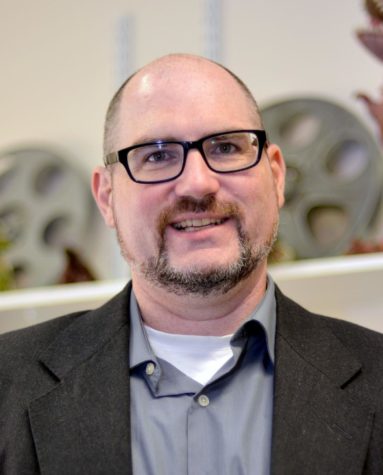
David A. Kirby is the Director of the Science Technology & Society Program at California Polytechnic State University. In 2011, he published the book, Lab Coats in Hollywood: Science, Scientists, and Cinema, which served as the first study of the cross-sections between the worlds of science and entertainment.
Mr. Kirby graciously consented to be interviewed by me via e-mail; below is the result of our interview.
How can creatives find a balance between the story/narrative they’d like to portray, while also conveying interesting/positive representation of STEM?
It all depends on the talent of those creating the story. There shouldn’t be any reason why they can’t tell a story with science that is also interesting and entertaining. Unless they are lazy and fall back on standard stereotypes they should be able to create compelling scientific characters in the context of whatever story they want to tell. I certainly have a hard time with films where the science is not only completely implausible. But it is far worse when science is used to tell a boring or unoriginal story or a story with unrealistic or irrational scientist characters.
Why is it that fictional science narratives have so much impact on our perceptions?
A number of studies on public perceptions of science demonstrate that what science means to people, not scientific knowledge, maybe the most significant element contributing to public attitudes towards science. The cultural meanings of science are crucial to public perceptions of science and fictional stories can have a significant impact on the cultural meaning of science overall, on scientists as a group, or on particular types of science like genetic engineering or climate change.
Where did you first discover these intersections and what draws you to them?
I taught biology at American University in Washington, D.C. for several years. During that time I organized a “Film and Biology” night that fueled my interest in the relationship between fictional representation of science and attitudes towards science in American culture. In particular, I became fascinated with the ways fictional films utilized scientific ideas and concepts within their stories. Following this interest, I wrote an academic essay showing how the movie GATTACA (1997) serves as a bioethics text that does not fault the technology of genetic engineering, but instead critiques the ideology of genetic determinism. I subsequently wrote a number of other essays exploring how science fiction movies simultaneously reflect and influence the cultural meanings of genomics and genetic engineering. What draws me to this topic is the idea that movies, TV shows and video games reflect the kinds of stories people want to tell about science. Someone has made very specific decisions to tell a story about science in a particular way. I am interested in learning about why they made those decisions.
Have you ever had to deal with backlash about interweaving fun/light-heartedness into science? What are your thoughts on “pop science” territory + criticisms?
Not really. Science is often fun and can be as light-hearted as any other activity. I think the problem comes in when fiction treats science in a negative stereotypical way. As we see with The Big Bang Theory, science can make for good comedy and characters like the nerd Sheldon can be fan favorites. But when media producers rely on stereotypes to be a stand-in for character then the scientists can be portrayed in ways that are harmful to the public’s perceptions of science. Having a stock mad scientist or absent-minded professor character contributes to a negative depiction of who scientists are.
What insights has your research into the field shown?
My research shows very clearly that scientific expertise can be incredibly valuable in helping entertainment professionals create plausible, authentic, and aesthetically appealing movies and TV shows. It is most useful if they bring scientists into their productions as early as possible. Not just for their expert knowledge, but also for what I refer to as scientists’ “expertise of logic.” Scientific training develops an ability to parse through small details, but it also gives scientists a capacity for understanding and seeing the connections within complex systems, a skill that can prove beneficial for screenwriters, producers, and directors as they flesh out the structural foundations of their plots. A common public perception of science is that it is devoid of creativity or that creativity hinders a practice built around objectivity. Yet, science is an incredibly creative process built around the skills of speculation, synthesis, integration and problem-solving. Certain entertainment professionals, like James Cameron, bring scientists in as advisors very early during production because they understand that scientists’ expertise can be used to examine film and television scenarios holistically.
One of the main take-home messages from my research is that we get way too bogged down in the idea of “accuracy” when we judge movie science. I much prefer the terms authenticity and plausibility, which better capture how closely we think a movie’s science represents real-world science without being bogged down with unrealistic expectations that come with holding movie science to the lens of “accuracy.” We need to remember that films and TV shows do not generally succeed critically or financially because of the volume of accurate science they contain. Rather, movies and TV shows are successful when entertainment producers use science as a creative tool to make their texts visually remarkable, intellectually appealing, and dramatically engaging. The goal for science consultants should be to assist entertainment professionals in negotiating scientific authenticity within their own contexts of narrative, genre, and audience. Just as scientists are scientific experts, entertainment professionals are “entertainment experts” who understand best how to deal with the constraints imposed by the media of film and television. Rather than inhibit creativity, working with a science consultant should compliment filmmakers’ skills at creating entertaining products.
What is your favorite example of science in film and TV, and why?
I remember seeing the original Planet of the Apes as a kid and realizing that science fiction movies could have both exciting action sequences and be full of interesting philosophical ideas including debates about science/religion. 2001: A Space Odyssey is certainly the most scientifically accurate film made (for its time). Stanley Kubrick consulted with over sixty-five private companies, government agencies, university groups, and research institutions. Although many people do not like Darren Aronofsky’s film The Fountain, I found it to be incredibly true to the scientific endeavor and about our need to find answers. I very much enjoyed The Martian for its tension and humor. While many people did not like the pacing (or the last half hour) or Interstellar I enjoyed its leisurely pace because it gave the film’s discussions time to breathe. But I would say my favorite recent example of science in entertainment would be The Arrival because it does a great job portraying scientists as real people while at the same time showing us how their work can answer questions on a cosmic scale.
Marian Caballo is a Copy Chief for ‘The Science Survey,’ and she is elated to be on staff for a second year. She is drawn to journalism because it...
Benzir Raida is a Chief Graphic Designer and Groups Section Editor for ‘The Observatory' yearbook and a Staff Reporter for 'The Science Survey.' She...

